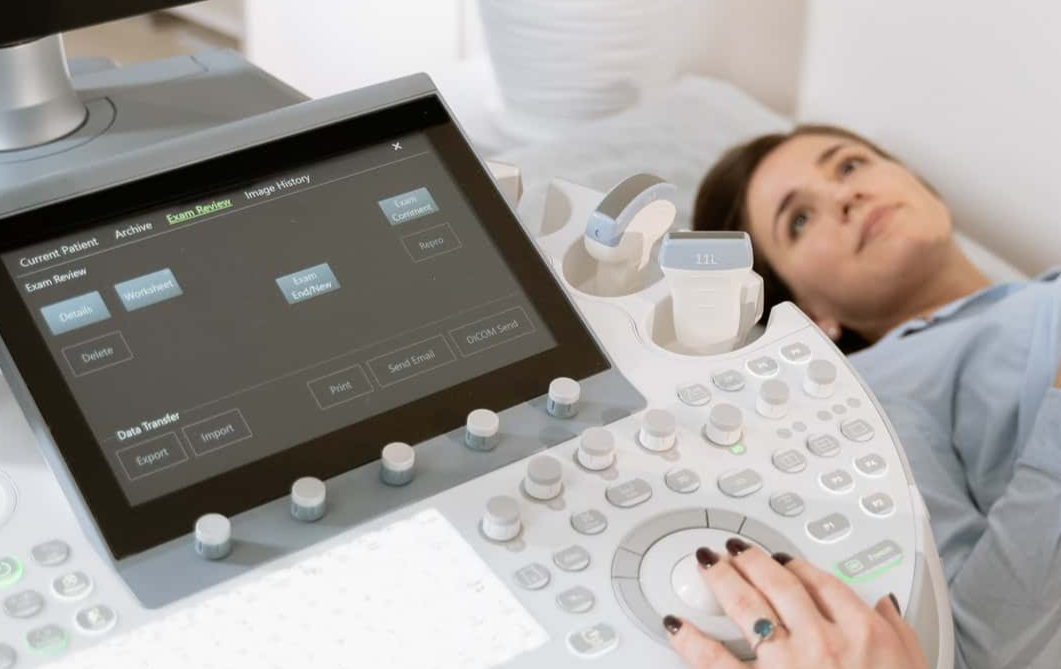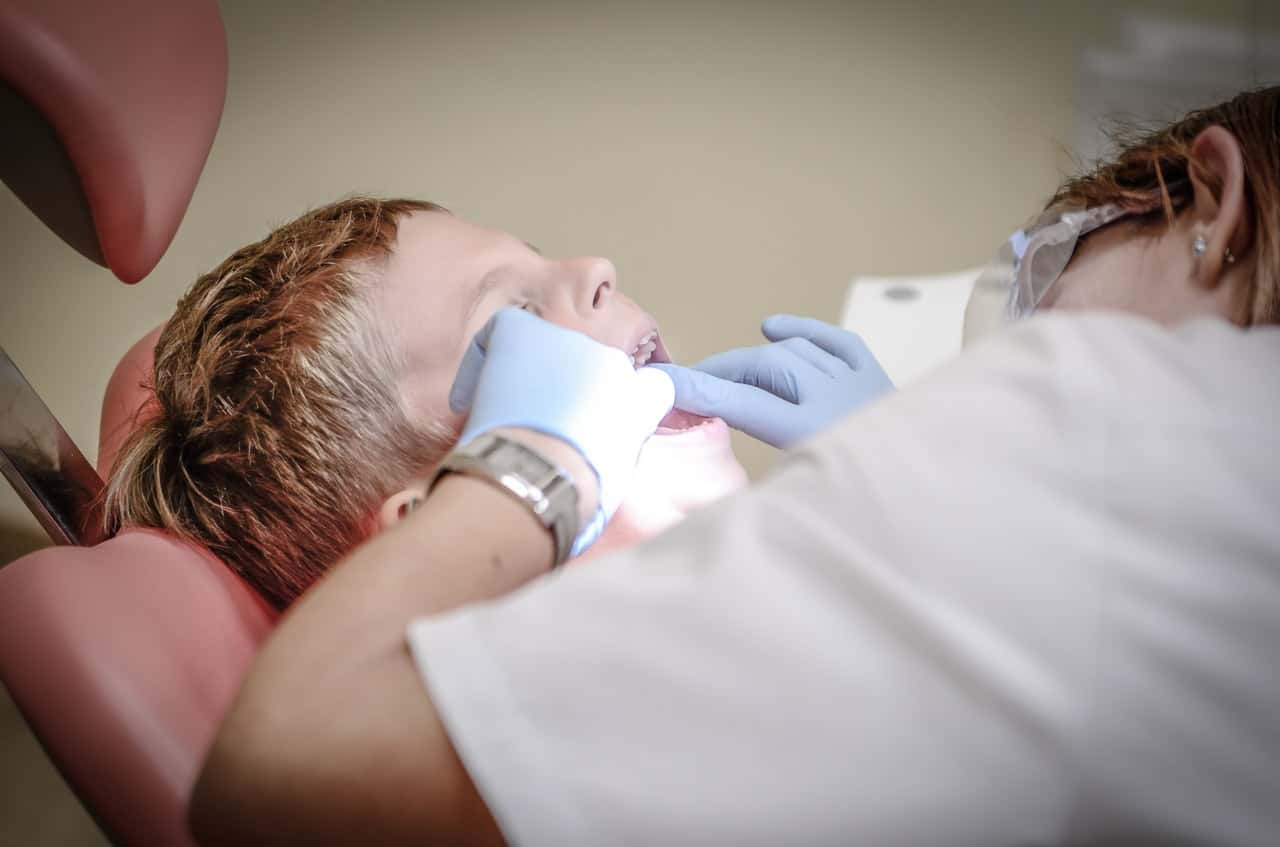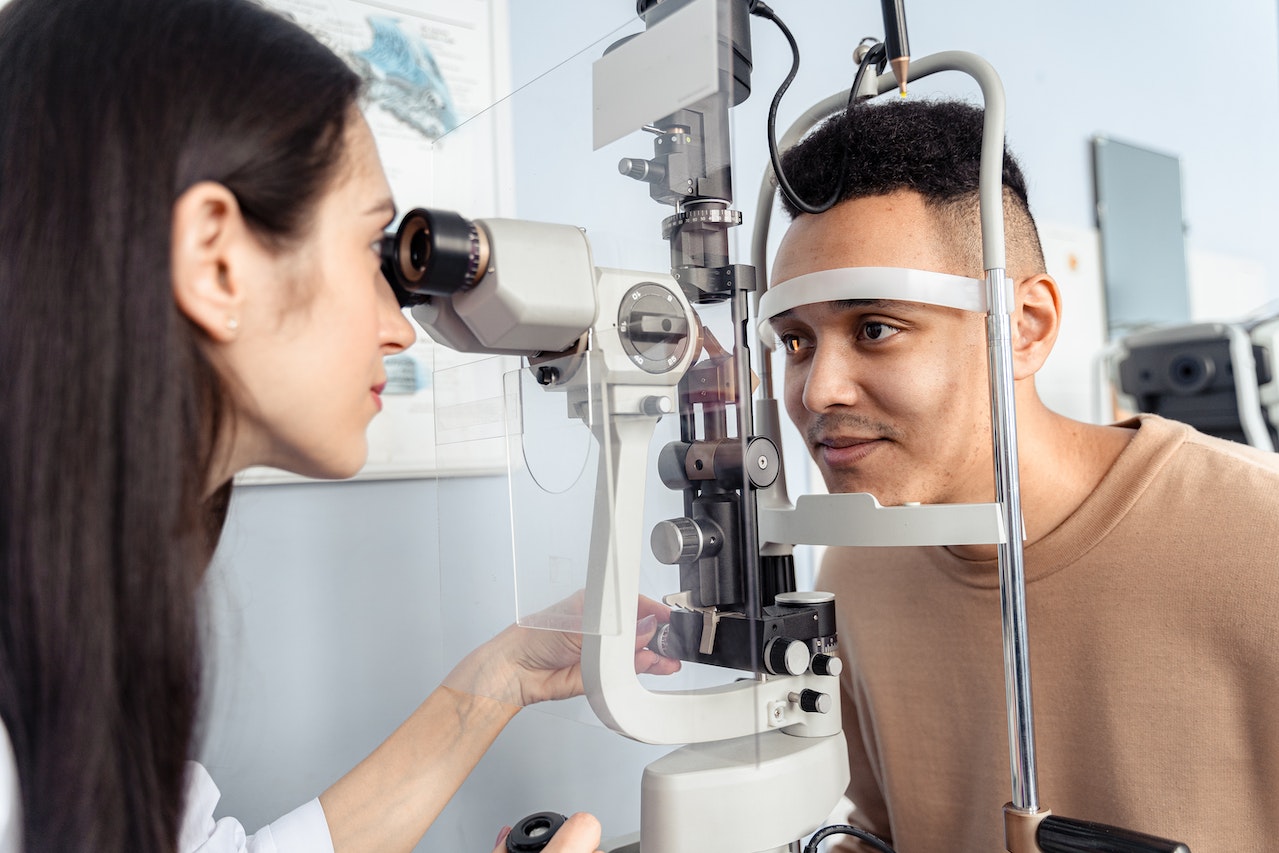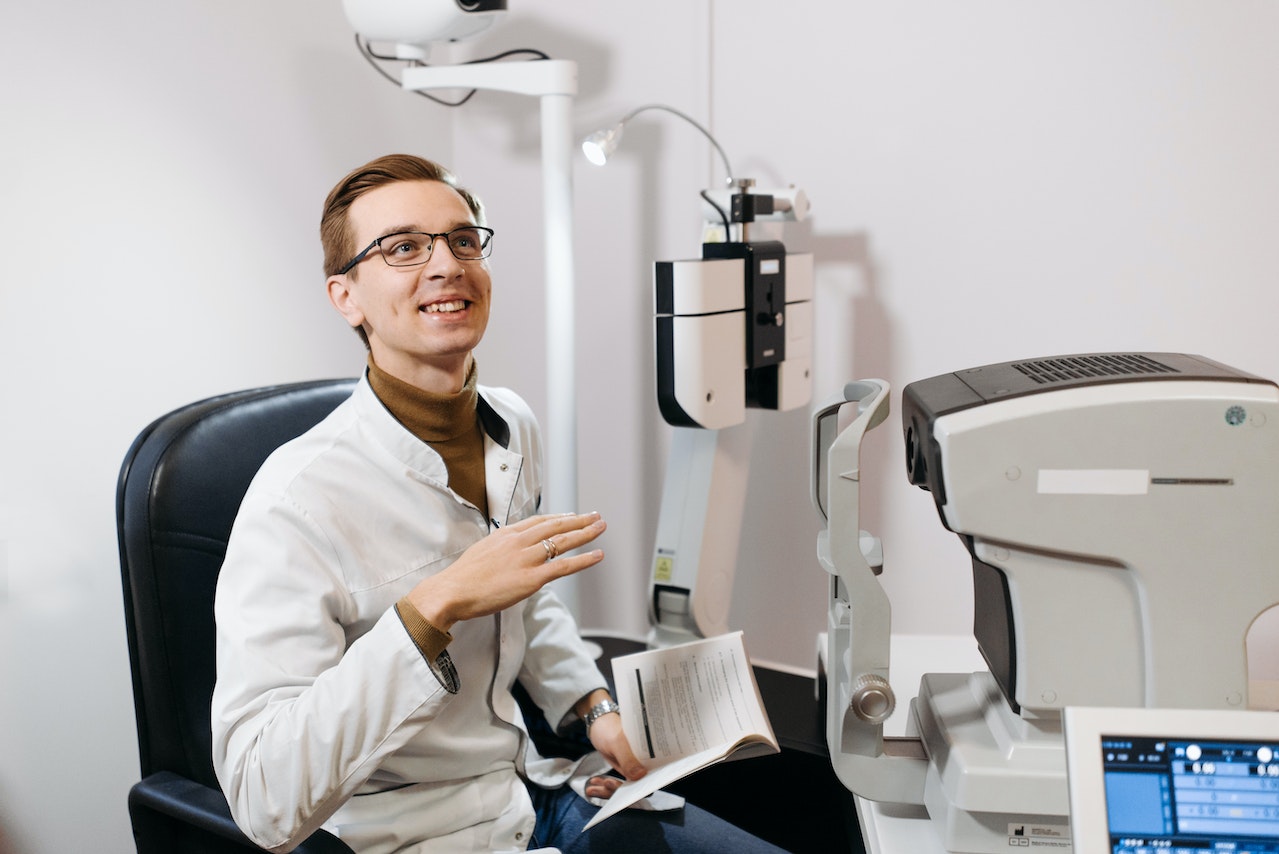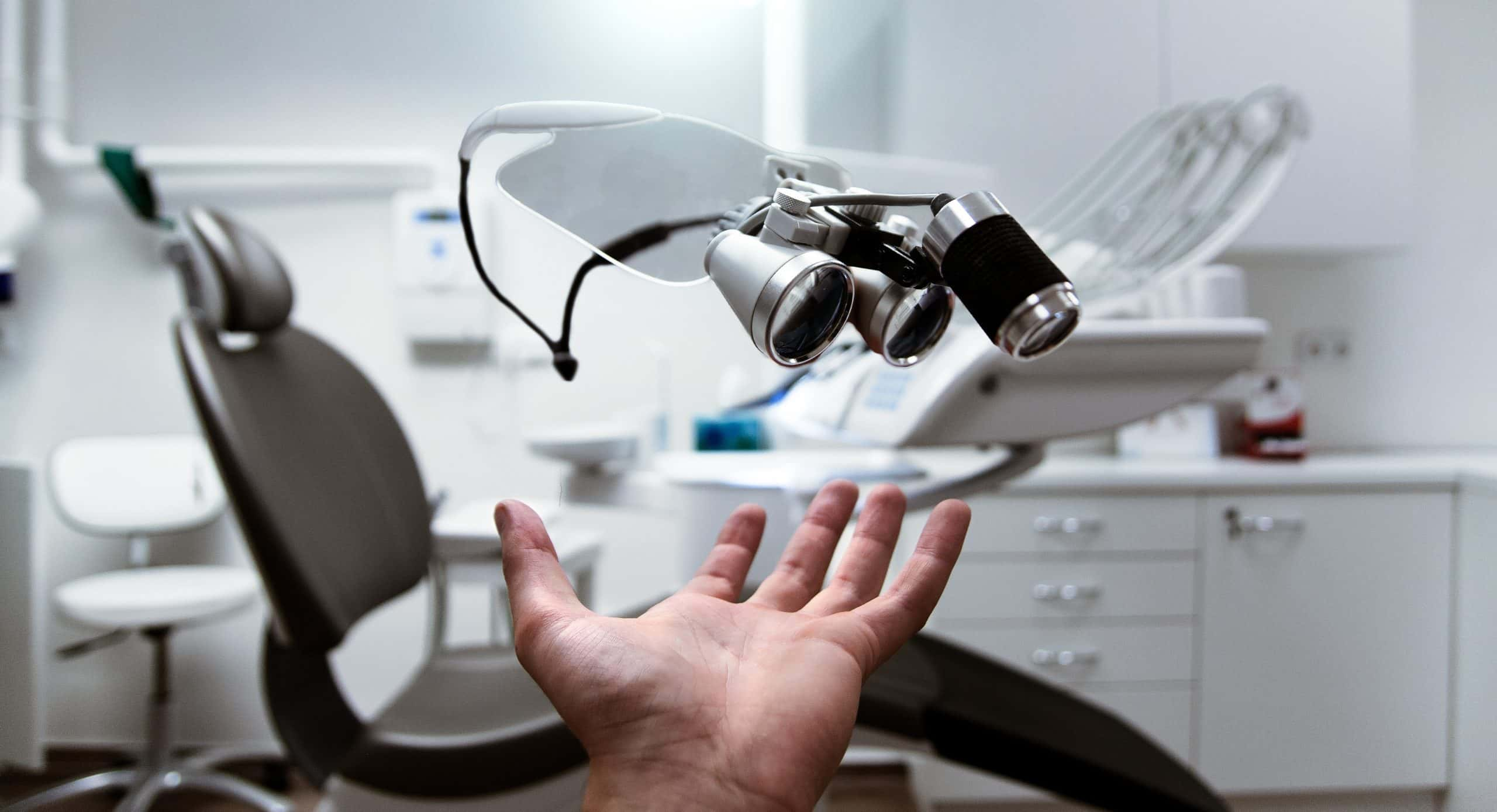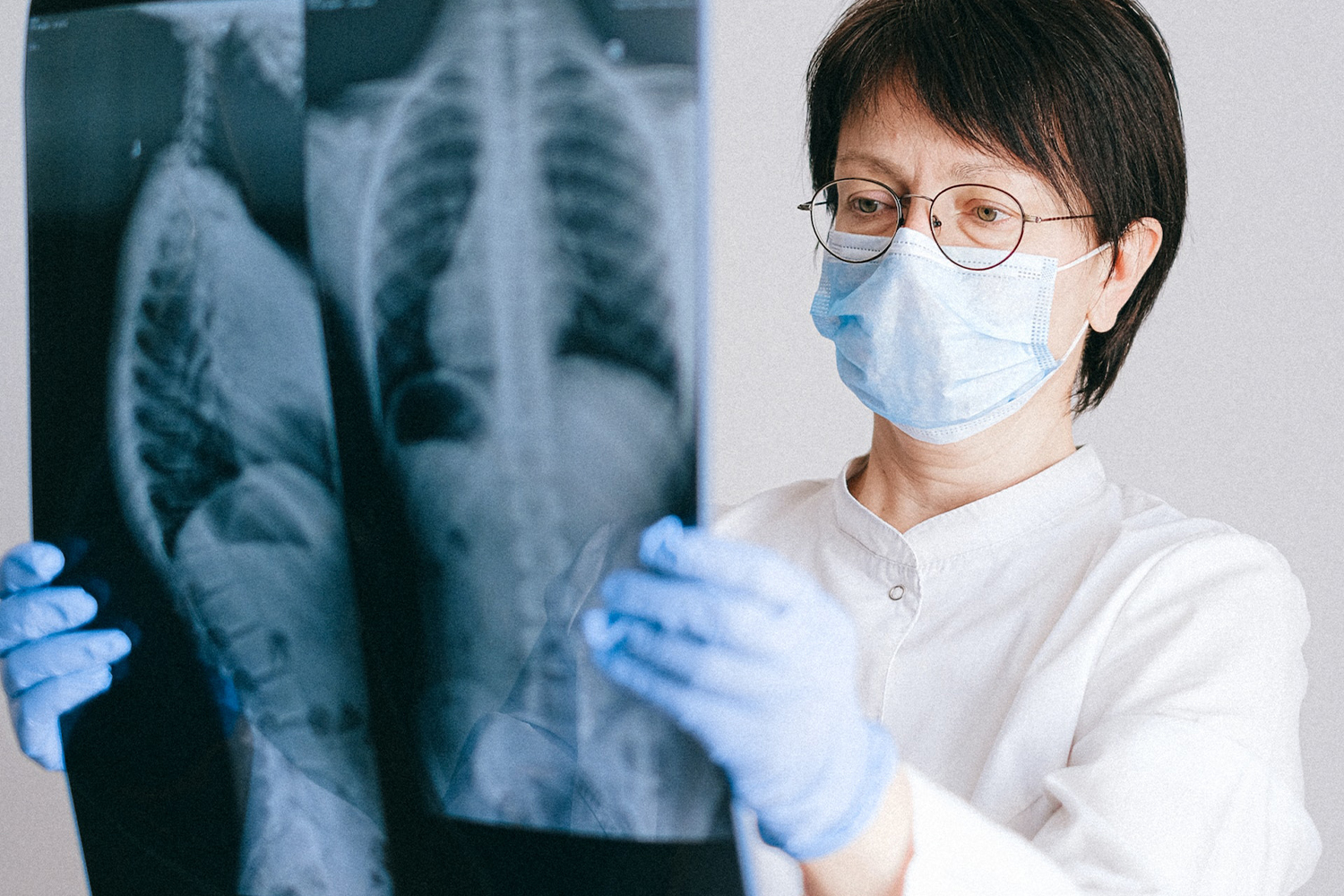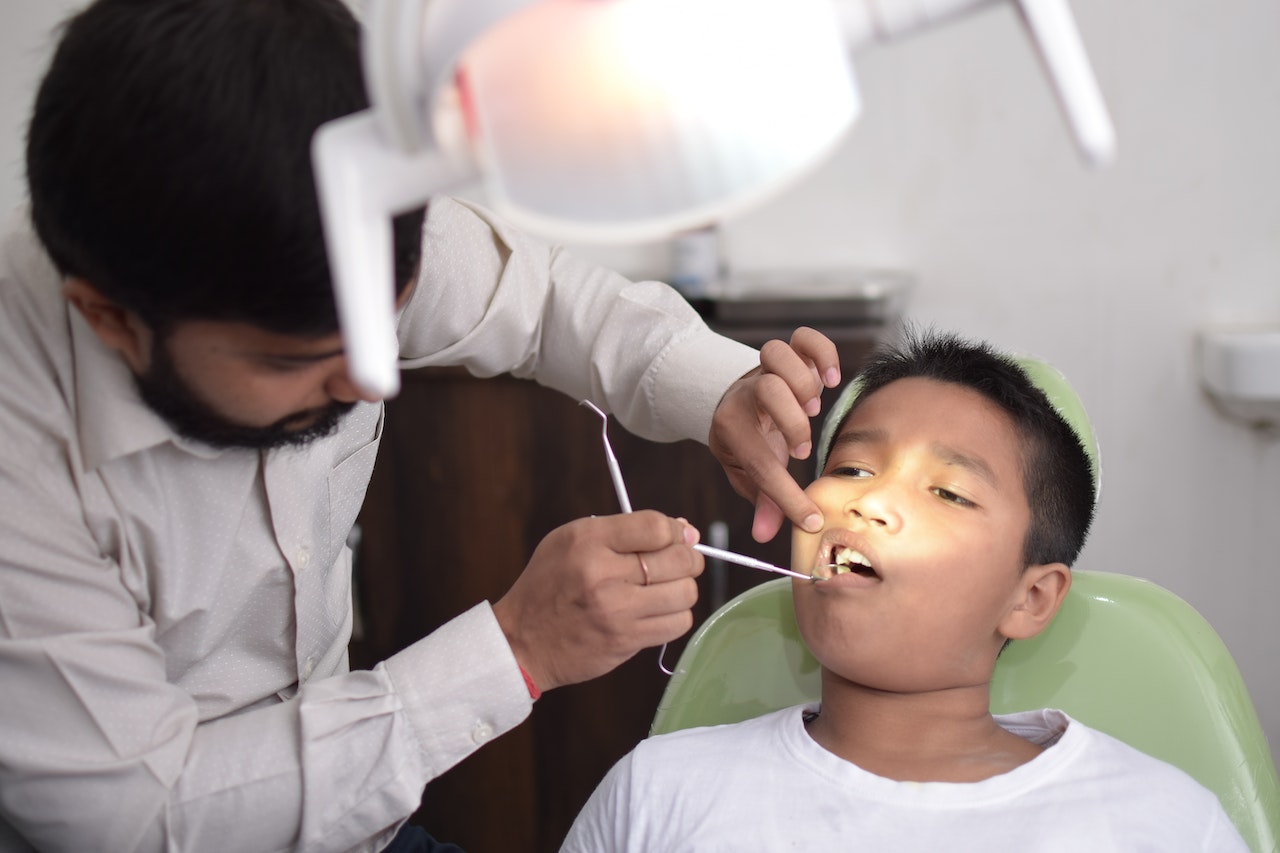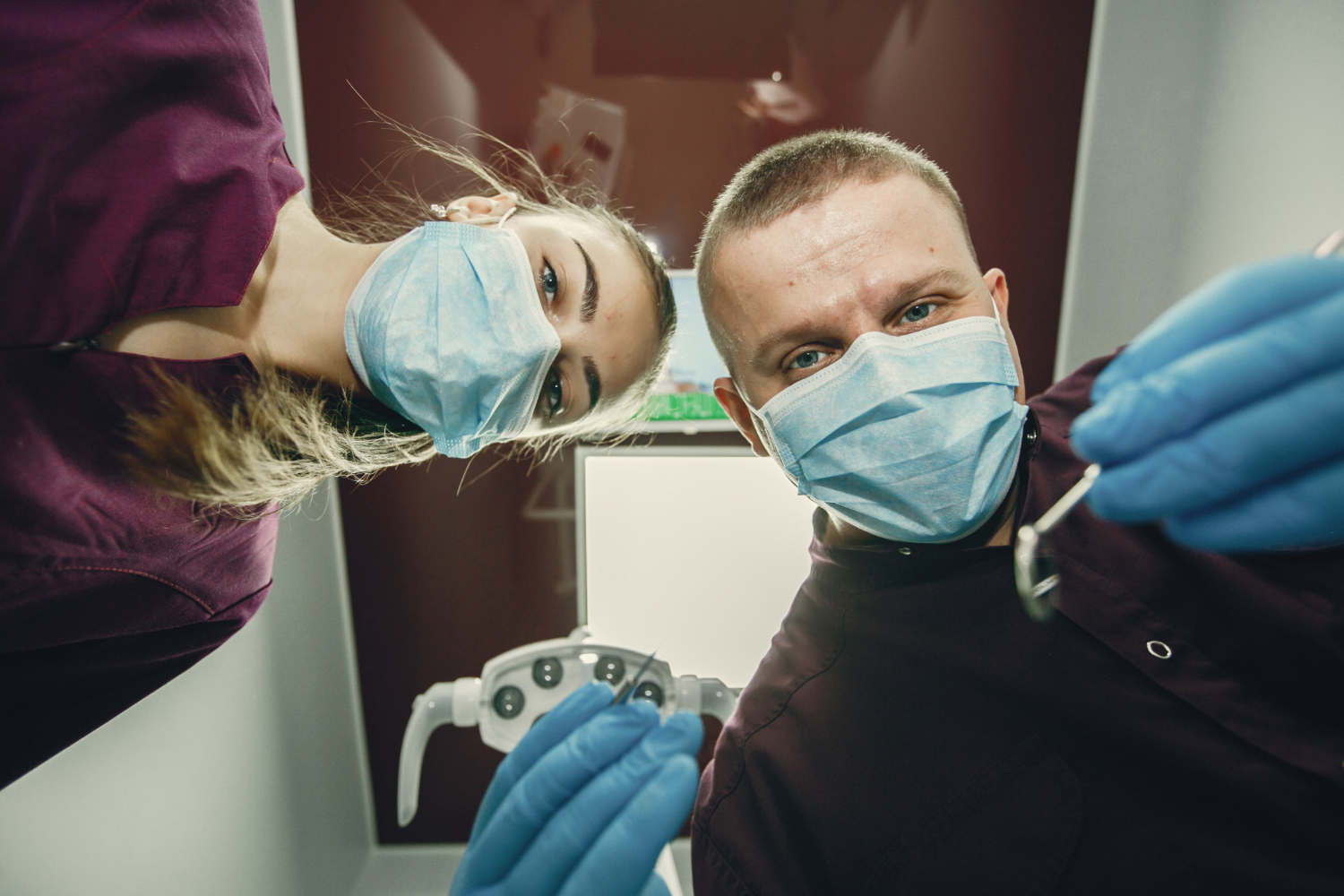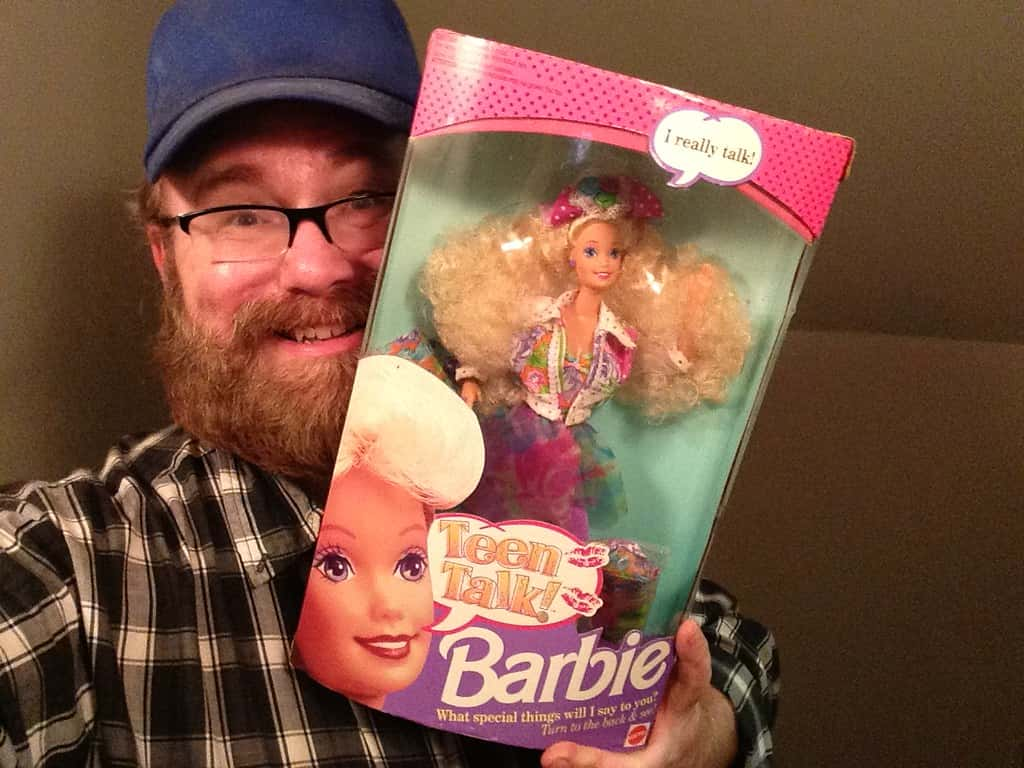Doctors are there to help people…but that doesn’t stop patients from telling them the most outlandish lies. Some lie out of shame–or lack thereof–and some are just confused, but the moral of the story: tell your doctor the truth. Read on for some stories about the wildest lies healthcare professionals have heard from patients.
1. Bugs Bunny Was There Before You
My father was a physician. One time, a woman came into his office because she had unintentionally gotten an object wedged in her private area.
She described how she ended up in this situation: she was at a nightspot, the bathroom light was out, and unbeknownst to her, the toilet seat was down—with an unexpected item on it. Unwittingly, she sat on it.
Seeing her discomfort, my father responded, "Alright, let's handle this immediately".
With great surprise, he removed one of the biggest carrots he'd ever seen.
So here's a small piece of advice, ladies: if you're out dancing and you find the restroom lights off, make it a point to inspect the toilet seat. You never know—you might encounter a carrot.
2. Still A Happy Ending
My ex-husband is an OBGYN. One night, just as he was about to head home, a woman burst into the clinic. It was almost 1am on a chilling winter's night. Alone and in labor, she was clearly in a lot of pain.
It struck him as odd that she was completely solo, a rare sight for a woman in labor, especially in our small, close-knit Egyptian town. In between contractions, she quickly relayed her ID details, including info about the father, assuring the doctor that he was en route from a different city.
There wasn't time for more questions, seeing her severe pain and discomfort; the baby was imminent, capturing all the doctor's attention. Post-delivery, she was left to rest in her room, with a night nurse looking after her.
Before leaving, the doctor checked in on her and the newborn boy. Once home, he told me not to disturb him unless the nurse called in.
At 4 am, the nurse indeed rang, sounding rather flustered. Judging by her tone and his responses, I speculated something had gone terribly wrong with the patient or the baby. The truth was, the new mom had fled the clinic! Neither the nurse nor the cleaner could stop or track her.
And what's worse, she'd provided false identification. My ex-husband alleviated my concerns about the baby, assuring me the nurse was taking good care of him.
A part of me couldn’t help but consider adopting the baby into our own family. While waiting for my husband to return, he showed up with unbelievable news.
He’d met a man at the station, a shop owner in the vicinity of the clinic, who happened to hear what unfolded. He and his wife, who'd been trying to have a baby for 20 years, had frequented the clinic several times.
Hearing their plight, the man wished to adopt the abandoned baby. Following some paperwork and signatures, they happily brought their new son home.
3. Better Late Than Never
Back when I was studying medicine, my first task of the day was conducting a pre-surgery check-up on an elderly man, eighty years old, who was slated for an operation. The clock was around 8:15 in the morning when I saw him.
My initial set of questions dealt with his medical background—his past illnesses, any prior operations, his current medication regimen and whether he had any allergies. I also inquired about any past history of alcohol or cigarette use, a standard part of our routine.
Given the noticeable yellow stains on his fingers, his pallid complexion, and his face's peculiar sallow hue, I was fairly certain the man was a smoker. So, when he responded "No" to my smoking question, I was taken aback.
Wanting to confirm, I asked him a follow-up question: "Have you ever smoked?" His answer was a simple "Yes." Following that, I queried about when he'd given up smoking.
His response? "This morning," he stated.
4. Saw That Coming
I was just finishing my late-night lunch when a 16-year-old girl was quickly brought into the hospital. She was in extreme stomach pain that hadn't stopped for a while.
The girl was an absolute wreck—shouting, crying, and praying to every saint she could think of. She rated her pain a 12 out of 10, and it came on quickly. She had even wet herself, so we got her changed into a hospital gown.
My check-up revealed that she felt pain in her lower abdomen, which was constricting strangely. I asked about allergies: nothing. I asked about what she'd eaten or drunk earlier: also nothing. “Might you be pregnant?”
Both the girl and her parents dismissed that idea. They mentioned that her periods could be irregular, and she promised she wasn't pregnant. Still, something didn't add up.
For now, I only administered acetaminophen through an IV. Despite her pleading for a stronger painkiller—thanks, Grey's Anatomy—I held off. I started her on IV fluids and ordered a blood test along with a pregnancy test.
The parents strongly refuted any possibility of a pregnancy, but I explained that it was important to rule things out. The mom wasn't keen on the test, but the dad understood.
The assays were rushed, and when I got the results, it all made sense. On my way to share the information, a scream from behind the privacy curtain halted me. We hurried over to find out what was happening.
The girl was on her back, head bent forward, legs spread wide, completely bare. And she was pushing. Then it clicked. The tightening stomach. The 'wetting' of herself. The slight sound of doubt in her voice.
She was giving birth! And just then, a baby's head appeared between her legs! Everything sped up. I grabbed sterile gloves and a newborn resuscitation kit as my nurse called the Pediatrician and OBGYN on call.
I helped the girl through labor, let her hold the newborn for warmth and bonding, and luckily, the specialists arrived shortly to evaluate both the girl and the baby. Turns out, the patient had a secret boyfriend from school who she was very... close with.
Thankfully, mom and dad accepted their unexpected grandchild. The last I heard, the young couple had gotten married and had a second child. And THAT, dear colleagues, is why you should ALWAYS order a pregnancy test for women with stomach pain!
5. Tiny Confusion
For anyone who's a little bemused, I'm just a male doctor with an unusual name. Suddenly, my cell phone buzzed.
"Hello, can I schedule an appointment with the doctor ma'am?"
"Um, actually…”
I found myself stumbling over my words just like when I was a kid.
"I need an appointment today." The rough voice on the other end was unyielding.
"Unfortunately, we are fully booked today. The next available slot is on Monday."
"But I'm related to the local MLA, and a lot of my relatives are her patients. I've met with her many times before, and she told me to come in anytime, even without an appointment. So, could you please pass the phone to her?"
Was this person lying? Cunning? Maybe both?
In the end, I decided to include my qualifications on my name plate—Dr. Tiny Nair MD, DM, FACC, FRCP—and also stopped taking appointment bookings over the phone.
Despite all these precautions, every now and then, I'll catch my wife chuckling while answering a call on our home phone, and I can't help but smile at the reason why.
6. Caught In The Act
Once a month, a friendly woman in her 30s, who used a wheelchair, would come see me for a refill of her pain medications. Having taken over MJ's case from a previous colleague, I did not know the full details of her pain situation.
She was always warm to me, usually spending a few minutes sharing tales about her two young boys, ages 6 and 8. MJ was diagnosed with chronic back pain and anxiety, and typically, I'd prescribe Percocet and Xanax for her every month.
Sadly, I never dug deep into her medical history—that was my failing. I just went on prescribing, uncritically following her previous doctor's plan.
One fateful Monday, a coworker flagged me and, pulling out her iPhone, revealed a series of photos. There was MJ, at a nightclub—no wheelchair insight—vibing with her friends in high heels and tearing up the dance floor!
I felt blindsided, and admittedly amused. I'd genuinely enjoyed our friendly chats and was dreading the inevitable confrontation.
When MJ came in for her next refill, I agonized over how to broach the topic. Deciding on simplicity, I asked her if she enjoyed dancing. From her wheelchair, she looked at me like I'd lost it. "Dance? How on earth would I dance in this wheelchair?"
Maintaining a calm gaze, I smiled and stayed silent a moment before asking from a different angle, "So, when was the last time you hit the dance floor?" Caught off guard, she laughed nervously before breaking down crying.
I reassured her, "It's all right. But, I'm afraid I can't keep prescribing these medications. We're going to gradually and safely wean you off them.” Despite a few minutes of protest and pleading for her refills, I had to insist on her transitioning away from the drugs.

7. Guess Mom Was Right
One day, while working in an emergency department, I encountered a young 18-year-old girl, brought in by her mother, who was suffering from recurring abdominal pain. Things quickly got tense when her mother loudly insisted that her daughter was pregnant.
The girl vehemently denied this. I decided to ask the mom to leave, which she did, giving her daughter a stern look on her way out. I resumed our conversation and questioned her about birth control. She said she was on the pill. When I inquired about her menstrual cycle, she said she'd been having regular periods.
Her vital signs were all within the normal range, except her heartbeat was a bit fast. Even though she didn't look pregnant in her loose top, something about her story was making me slightly suspicious.
Regardless, it was clear she needed help, so I escorted her to a private room and went to share my observations with a colleague. After that, I headed back to my station while my colleague went to check on the girl.
A little while later, my colleague appeared at the emergency department door, looking absolutely stunned.
"She just had a baby," she whispered in disbelief. I was taken aback for a moment, then blurted out, "So I guess we can forget about the pregnancy test now."
After all the commotion, the midwives took the girl and her newborn to the maternity ward. Unfortunately, I never found out what happened to the young girl or her surprise baby.
8. Fake Allergies For Fake Medications
One night when I was interning at the ER, a man with back pain came in. He couldn't explain how he got the pain and didn't want further examination. He was just looking for some pain relief medicine.
My colleague told me an important detail—the same man often came at the start of each month, when new interns like me would be working, hoping to persuade us into giving him particular drugs.
My colleague recommended that I provide the man with some fake medications to take home. So I gave him a gentle over-the-counter pain killer along with a packet of four placebo pills.
I instructed him to only take these once he was safely at home and in bed, and to limit himself to one every six hours, given their apparent strength.
He was clearly unsatisfied and asked suspiciously, "What are these?"
I introduced them as a new medicine named "Groncagon."
He immediately refused, shaking his head, saying he couldn't use them. When I asked him why, he replied, "I'm allergic to Groncagon".
9. The Hero He Deserved
I'm no dentist, but I used to work with kids as a dental assistant with expanded duties. I once had a 4-year-old patient with horribly bad teeth. Even his tongue didn't look normal. His mom insisted that he always brushed his teeth and didn't eat sugary food. To be frank, that didn't add up with what I saw—an immense buildup of plaque.
While his mom was taking a call, so I escorted him for his X-rays. I asked him about his favorite foods and he instantly mentioned chocolate, candy bars, and soda. Diving deeper, I found out he drank soda from his baby bottle daily—a habit that should have been abandoned years ago. Also, access to candy and chocolate was abundant.
Regarding brushing his teeth, he admitted he didn't know how. His mom apparently told him he didn't need to, but his dad emphasized it. Looking at his X-rays, it was heartbreaking—cavities were present in all of his teeth and likely future decay in his permanent ones.
Back at the chair, I started cleaning his teeth and began explaining why good dental hygiene is essential. His mom wasn't receptive to the discussion and seemed perturbed when I revealed her son's frequent sugar intake and brushing habits. She countered saying his baby teeth would fall out anyway.
During this time, his father arrived. After explaining the situation, he was furious but restrained, threatening to drag her to court for neglect. She tried to excuse her behavior but he wasn't buying it.
Through all of this, I continued cleaning his teeth, removing layers of plaque. It was heartbreaking to see such neglect affecting this cheerful boy's dental health.
His mom stormed out and the boy left with his dad for the weekend. We devised a treatment plan involving pulling and filling several teeth, along with diet recommendations.
Four weeks later, when they returned for the extraction procedure, the boy proudly announced he lived permanently with his dad now, who had taught him a lot about hygiene. Over the next year, this once sickly child blossomed beautifully. He gained weight, improved his hygiene, and improved his vocabulary.
We managed to stabilize his teeth health and the potential damage to his permanent teeth seemed less severe. On his final appointment before I relocated, he showed no signs of new cavities, gleaming with joy at his victory over the "sugar bugs." It was a sight to behold.

History's most fascinating stories and darkest secrets, delivered to your inbox daily.
10. Pregnancy Is Tough But This Is Going Too Far
One day while I was on duty in Labor and Delivery, a woman came in who turned out to be my patient. As I was responsible for unplanned appointments, she was assigned to me after bragging about her prenatal care from another state.
She raised a red flag by stating she couldn't feel her baby moving and that her due date was supposedly a week overdue. She was adamant that we had to induce labor.
After performing an ultrasound, I was surprised as the baby was tiny, much smaller than expected for a baby at full term and also active. Usually, this situation indicates a lack of oxygen and stunted growth in a full-term baby, which would normally suggest the baby should be delivered.
However, this woman's explanation was puzzling. She was vague about where she received prenatal care, something we needed to know so we could review her medical records.
We decided to make a wild guess and called a large local hospital. Apparently, she had been showing up there everyday with various worries like contractions, bleeding, or lessened fetal movement (all without concrete proof). Exhausted from her pregnancy, she'd been pleading for a premature birth for weeks.
Turns out she was only 32 weeks pregnant.
Each time she asked to deliver, she was tactfully reminded about the health risks a premature birth could pose to her baby.
Frustrated, she thought she might have better luck fooling a different hospital that she was at full term.
When we challenged her, she reacted with anger and indignation.
Her deception could have jeopardized the baby's health. Had we fallen for her lie, the infant would likely have faced an extended hospital stay with incessant blood draws, IVs, oxygen support, and possible lifelong health challenges, even risking death. The sure hospital bill? Well into the hundreds of thousands.
I'd say, that's a pretty dangerous lie indeed.
11. Won’t Try That Again Here
This fellow came in with a dislocated shoulder. It was clear as day on the X-ray and a simple physical check also confirmed it. His chart showed that it was his second visit to the emergency room that week for the same issue. Once a shoulder has been dislocated, it tends to be unstable, making it more likely to dislocate again even with negligible stress.
His story got a bit odd, though. He claimed his shoulder dislocated a second time when he removed his sling to pour a bowl of cereal, with the movement of lifting the half gallon of milk seeming to be the problem. He appeared to be in severe pain.
Our only option was to get the shoulder back in place. This can be achieved in several ways, but for the most effective methods, sedation is a necessity, especially considering the level of pain he claimed to be experiencing.
We hooked him up to a monitor and had a nurse, a medical technician and even a medical student on deck to assist or learn from the procedure if it proved to be challenging.
The amount of pain medication needed to sedate him was almost double than what we usually require. And even after that, he was crying out in pain as soon as we began pulling his arm. So we gave him more medication. Once he was sufficiently sedated, putting his shoulder back into place was a breeze.
Post-reduction, we wrapped his shoulder in a sling, confirmed with X-ray that everything was aligned correctly and then sent him back to his recovery space while we arranged a follow-up with an orthopedic surgeon.
When I went to talk with him about the follow-up and his upcoming consultation with a surgeon, he was screaming in pain, claiming his shoulder had dislocated again on its own. An X-ray verified his claim and we found ourselves repeating the entire procedure.
This time, he was discharged, but he soon returned, this time stating his shoulder dislocated while trying to get into his car. Hence, we had to prepare to redo the whole process.
However, an ER technician revealed that she saw the patient dislocate his shoulder voluntarily after stepping out for a cigarette break. When confronted, the patient initially denied but ultimately confessed he could dislocate his shoulder himself and had been doing so intentionally to get long-acting sedatives instead of the short-acting Propofol we were using.
This is extremely hazardous. Emergency room sedation is not ideal; it involves risks including choking, circulatory collapse, and blocked airways. As we know, any untruths a patient tells their doctor can be dangerous, but this kind of lie is particularly akin to playing Russian roulette.
12. Of Course You Do
Yes, truth be told, I was indeed the patient but it felt like I was dancing around the truth at times.
A few years back, I was given a diagnosis of keratoconus, an eye condition that made me worry about needing a corneal transplant.
Before taking such a drastic step, my eye doctor sent me off to a specialist in a larger city, an hour's drive from my small-town home. This specialist was based in a huge research hospital.
Interestingly, my daughter, who had recently become a doctor herself and was completing her residency at that very hospital, asked to sit in. The specialist happily agreed and looking back, I'm so grateful he did.
After a quick 5-minute review of my case and a brief examination, the specialist posed a simple question that changed everything: “Do you rub your eyes often?” Without hesitation, I said no.
My daughter quickly corrected me, saying, “Yes, you do”.
Truth be told, I didn't consider what I was doing as rubbing my eyes. The specialist then advised me to stop what I thought I wasn't doing—rubbing my eyes. Soon after, I was on my way back home.
My friend who had given me a lift to the hospital was stunned to see me heading back to the car so soon. I recounted the dialogue with the specialist and his pertinent question about eye rubbing. My friendly chauffeur echoed my daughter's words, saying, “Yes, you do”.
As we drove home, I phoned my son to fill him in on the hospital visit. When I mentioned the question about eye rubbing, he immediately replied, “Yes, you do”.
Back at home, I related the day's events to my wife. Her immediate reaction had me gagged. “Yes, you do”.
It seems as though everyone knew about my eye-rubbing habit, everyone but yours truly, that is!
13. Equal Opportunity Scolding
I was in the room when my ex-husband tried to fib to our doctor about his love for junk food. She pointed at her screen showing his medical history and responded, "Your blood tests tell a different story".
It got more interesting. She informed him that he needs to include fruits and vegetables in his daily diet. He claimed he already did.
I chuckled and retorted, “I beg to differ! Ever since we moved in 4 years ago, I've perfectly hidden my cola stash in the vegetable bin and you've never found it”.
Our doctor replied to him, "It's pretty clear you're not consuming enough fruits and vegetables." I was giggling until she shifted her attention towards me and added, “At your next check-up, we’re going to discuss your cola supply”.
Bingo! I was caught red-handed!
14. Just Yikes
One night, a woman arrived at the labor room, on the brink of giving birth. We instantly moved her to the delivery table. Given the high prevalence of hepatitis and HIV in our region, we routinely ask all patients about any pertinent past health records.
This particular woman didn't have any documents with her. She assured me that she had tested negative for HIV, hepatitis B, and C. With little time to double-check, we proceeded with her delivery in haste. During the process, her body fluids ended up splattering across my uniform.
Upon seeing her newborn, she urgently requested, "Doctor, please have the pediatrician administer Nevirapine!" (a drug used for babies born to HIV-positive mothers). I was dumbfounded. She knowingly misled me about her highly infectious health condition. Moreover, the fact that she knew her baby required Nevirapine showed her awareness of her condition.
Her reckless behavior put me at risk since I didn't put on the special protective uniform and eyewear typically used during such deliveries. Additionally, one of our delivery tables was temporarily out of commission after this event. Given our hefty workload, losing even one table for the night posed a major issue. We even have a separate delivery room specifically designed for handling such situations.
15. Technically Correct
My top pick for the most common misconception is the one people unknowingly spread, and it's surprisingly frequent.
"Are you dealing with any health conditions?" I question the 60-year-old.
"Absolutely not!"
"Do you have high blood pressure or high cholesterol?"
"No way, they're in check!"
Just a moment later, I inquire about their medicine routine, and they list off meds for managing high blood pressure, high cholesterol, and so on. In their view, as long as these conditions are controlled, they don't count as having them.
16. The Medic Knew
Around two days before I was set to start my active duty as a 2nd Lieutenant at my branch school, I got hit on my left side by a troublemaker wielding a hefty tool. I guessed, myself, that I might have cracked a rib or two, but didn't get treated, marching on to report for duty just as a severe snowstorm hit.
Due to an unfortunate slip and fall, I soon realized that physical training was simply not manageable. Thus, I asked for a medical check-up. The medic confirmed my suspicion—I did indeed have broken ribs. She advised me to take a few over-the-counter painkillers and to return in three days. As I was leaving, I asked her, "Could I assume that I'm on light duties until I see you again, Doc?"
"By the way, when was your fall?" she asked. I informed her that it happened the previous day, on my way to physical training. It seemed like I was shut down almost instantaneously.
"Based on how quickly you're recovering, you should be up and at them by tomorrow afternoon!" she declared.
Did I say those words came back to bite me? And how! Although I managed to avoid a lung puncture, did I mention the pain! My time in uniform included two weeks of the most agonizing physical training ever.
17. Believe Your Kids
When I was six years old, something happened quite abruptly. Out of nowhere, I started feeling extremely fatigued, even after resting. My parents figured I was just trying to get out of going to school despite the fact that generally, I was doing well in school and actually liked it at that time.
I did my best to articulate to my parents that I wasn't feeling well, but being a six-year-old, my concerns weren't taken seriously. My dad decided to counter my claims by walking me to school the next day—and that's when everything spiraled downward.
My school was only a brief 5-10 minute walk from our house, but I couldn't make it. My breathing became labored and within a few steps, I wasn't able to walk at all. I can remember, as clear as day, how my dad hurried me along by the arm, while I choked for breath and cried in pain, unable to muster the strength to take another step.
My dad mistook my physical struggle for acting out and still insisted I go to school–it was a scenario that repeated itself for a couple more days.
Eventually, my parents took me to a doctor. He was a nice man, but unfortunately, he also didn't grasp what I was trying to express about not feeling well. He steered the conversation towards how wonderful school was, totally missing my point that the issue was not with school, but my capacity to breathe when I walked.
Despite his good intentions, he wasn't truly listening to me, instead focusing on school and questioning whether anyone was bullying me, thinking that was why I didn't want to go.
He did comment that I seemed a 'little pale', which quite frankly was an understatement. I was literally as white as a sheet! Thankfully, this led him to take a blood sample.
Another grueling day arrived where I was awakened early and dressed for school. But this time, before my dad could haul me off to school, there was a call from the doctor. He informed my parents that my test results were out and they should take me to the hospital immediately. He had already prepped the hospital, where I heard the term 'leukemia' for the first time.
I've kept all the medical documents from that time. I was so direly anaemic, virtually incapacitated by my extremely low Hb levels, prompting the immediate need for blood transfusion. A bone marrow biopsy followed the next day.
Today, the only telltale signs from that era are two small scars on my chest, but I'll never forget the utter despair I experienced when no one took my word seriously. However, I'm better now and that's what matters, even though the memory continues to linger.
18. Same Old Story
Early in my internal medicine internship, I had a short stint in the ER. A teenage girl, about 15, came in. She had a recurring abdominal pain and her medical history noted irregular periods, constipation, and a bloated stomach.
Given her young age, her mom was present for the consultation and physical exam. The patient insisted that she was not active and her mom handled most of the conversation.
After listening, I relayed the information to my supervisor, and we talked about the tests we should run and the necessity for a pelvic examination. I requested the nurse to prepare her for the exam.
I confess, I was quite anxious. I had performed scarcely more than five pelvic exams till then. Thankfully, as soon as I pulled back the sheet on the examination stirrups—it was clear what was going on. Wet curls peeked out.
My audible surprise unsettled the mother. The girl started crying, realising her secret was out. With every deep breath she took, the crown of the baby's head became more noticeable.
I gently placed my hand to slow the baby's descent and instructed her to take short, quick breaths like a puppy, and avoid pushing. Unprepared for this, I sent the nurse to fetch an OB specialist and my supervisor.
In my nervous state, I tried to remember everything I had ever learned about childbirth. It felt like an eternity before my supervisor, an entire team of nurses and a drowsy OB specialist arrived. The room was so packed, I was ousted outside. Still, I could hear everything as they delivered a healthy baby girl.
19. Trust The Symptoms, Not The Patient
While I was training in obstetrics/gynecology, my professor emphasized the importance of gauging the specifics of a patient's symptoms rather than relying solely on their account of the situation. He explained that patient histories can sometimes be inaccurate or even deceitful.
Using an example, he described a case involving a religious individual committed to celibacy. She was rushed to the Accident and Emergency department due to intense bleeding from her lower body, coupled with severe shock from drastic blood loss.
Despite repeated questioning, she maintained she had no romantic encounters and had never been intimate with a man, even as her condition worsened.
Given her symptoms, the doctor suspected an ectopic pregnancy — a condition where the fertilized egg attaches and grows outside the uterus.
Deciding to trust his instincts over the patient's denials, the doctor carried out a pregnancy test, which came back positive. An ultrasound scan further confirmed his diagnosis.
The patient's life was saved that day, thanks to the timely intervention and decisive action of an experienced doctor, who acted on his observations rather than just the words of the patient. After undergoing a successful surgical procedure, she was eventually discharged.
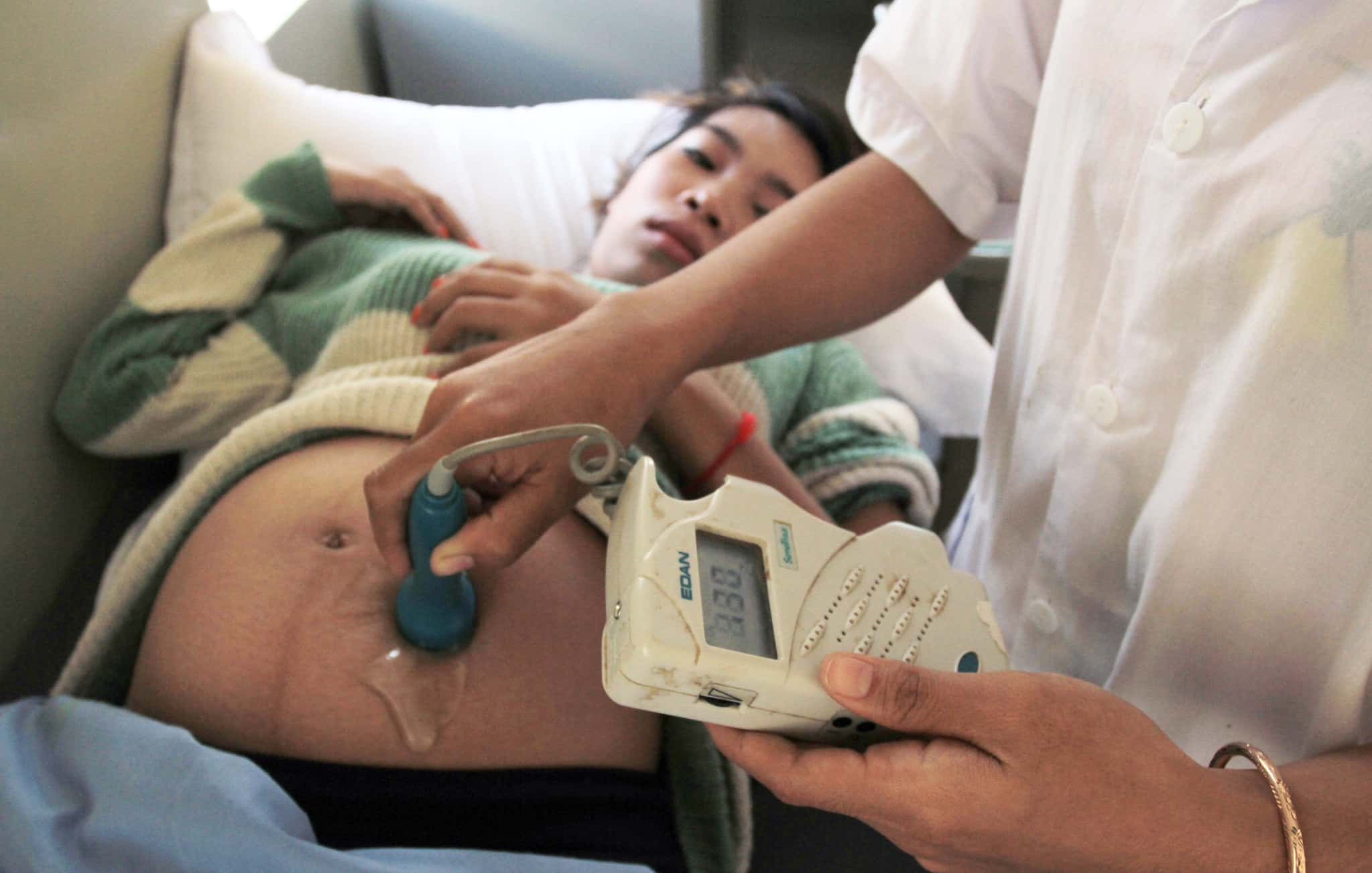 Flickr, World Bank Photo Collection
Flickr, World Bank Photo Collection
20. It’s Just Being Selfish
I'm a nurse, and I had an awkward mix-up due to some parents in the Pediatrics department I worked in. It was such a needless hassle to straighten out.
I was managing patients and headed for the crowded waiting area to call the next family using their surname. The mom, dad and their little girl stood up and followed me back.
I led them to a room, checked their vitals, verified the reason for their visit, tweaked a few things in their medical record, updated their pharmacy and allergy information, and then informed the pediatrician they were prepared for their appointment.
However, barely a few minutes after the pediatrician entered the room, they came back out saying, "This isn't my patient, who is this?"
I went back to question the parents and realized they were indeed not the scheduled patient. Confused, I asked why they claimed to be someone else. Their response was simply that they got tired of waiting so they decided to come in.
The mishap meant we had to reverse all changes made to the patient's file and consult our attorneys to ensure no HIPAA regulations were violated, which thankfully, we didn't. It still stuns me how people can believe that something like this would go unnoticed. Like, how did they think it would work out?
21. At Least She Had An Interesting Story
In my intern days, I once had to admit a woman to the hospital.
During our initial conversation, she shared that she worked as a nurse in World War II and had been a prisoner of war in a Japanese camp located in the Philippines.
She narrated a thrilling experience of almost getting halved by machine gun fire while trying to escape, and she spent nearly a year in the hospital healing from that incident. It was amazing, she told me, that she was still living.
Soon after, as I got ready to conduct her physical examination, she changed into her hospital gown with me out of the room. But when I returned, something didn't add up—I saw no signs of scars and there were no traces of any bullet or surgical wounds when I listened to her lungs.
Well, the truth came out eventually. She was suffering from schizophrenia and had fabricated the entire tale! Her mental health history was quite extensive, it turned out. And for a brief moment, I'd actually believed her story!
22. Waiiit A Minute
I'm not the subject of this story, but my brother is.
On his initial day of middle school when he was 12, he was sent to a mental institution due to an approach called Baker Act. This happened even though he is autistic and not a threat to himself or others—his Individual Education Plan (IEP) was discarded, but that's a whole different tale.
Fast forward to the next day, my mother was allowed to visit him. The nursing staff confessed, 'We can now see that AJ is entirely non-threatening—this situation should never have happened'. A nurse even shared a funny story about AJ:
The nurse and AJ were having a conversation. She was asking about his life at home and all. My brother, a keen storyteller, told her, 'My sisters, they love to drive me into the basement and hurt me'.
Hearing this, the nurse was taken aback. She even began to worry after AJ vividly described the ordeals supposedly caused by a 15-year-old and an 8-year-old. However, her panic eventually turned to revelation...
We couldn't possibly own a basement. We reside in Florida!
23. Not So 20/20 Vision
A while back, I was snapping shots of the back of diabetic patients' eyes in a clinic.
I had this dear lady in her 70s on my chair. She had really bad damaged vessels at the back of her eye, to the point where I couldn't get a clear view of the back of her eye, but per protocol, I tried my best to get a good photo. Usually, this requires the patient to fix their gaze on a pointer, which allows us to guide the eye.
Unfortunately, due to her severe condition, she struggled to focus on one thing. Despite this, she insisted, "There's nothing wrong with my sight, young man, and I'm staring straight at your pointer!"
I gently proceeded, giving it my best shot, then walked her to the door and down some unstable steps, which of course, wasn't because she had vision problems.
Her daughter, who waited at the bottom of the steps, slightly to our right, chimed in, "Hi Mom, the car's over here." She motioned further to our right with one arm, extending the other to guide her mom.
"Thanks, sweetheart," the mother replied, and she promptly strode off to our left, toward a rather taken-aback man waiting his turn at the clinic.
24. He Doesn’t Lack A Spine…Yet
A 60-year-old man was admitted to the hospital due to an infection he got after having a spinal fusion. He underwent a surgery to kick out the infected hardware, then a neck brace was put on him to give support to his spine. His doctor's orders said, he needed to keep the brace tensioned 24/7 for a whole month.
He was able to stick with it for 16 days, before he decided to take it off on a Sunday evening. He tried to convince me that he'd gotten approval from his surgeon to remove the brace, but this was untrue.
I put it to him that his spine was really delicate right now, and any wrong move could lead to lifelong quadriplegia. His response? "I don't believe that'll happen. Even if there's a big blast, I'll hold completely still."
Over a phone call with his sister, he raised his voice and announced, "Well, I yanked it off because it felt nasty. At first, my neck was very rigid but I shook myself a bit and something inside shifted. I feel so much better."
His nurse and I shared a moment of dread in silence.
25. One Big, Jagged Liar, STAT
In the first year of my internship, we had a patient who complained about an intense pain on the right side of his lower back and had a history of kidney stones. He insisted the only remedy that helped was "2mg of IV dilaudid, STAT".
He claimed an allergy to all other pain medications but was confident that "2mg of IV dilaudid, STAT" would ease his pain. So, we requested a urine sample from him and took an abdominal X-ray.
The returned urine sample contained a significant amount of blood, implying the presence of a kidney stone. After examining the X-ray on the lightbox alongside my fellow interns, we identified a large, sharp kidney stone.
The size of the stone stumped us. We couldn't fathom how such a big stone could travel through the ureter (kidney tube), and it seemed unusually close to the surface. The patient was growing more frustrated by the minute, demanding his "2mg of IV dilaudid, STAT".
A senior nurse passed by at this moment, assessed the X-ray, glanced at the patient, labeled us as fools, and lifted the back of the patient's gown, revealing a piece of white chalk secured to his back with scotch tape.
She also squeezed each of his fingers until she discovered one with a tiny hole through which he had added blood to his urine sample. His 'urgent' solution was to promptly exit the emergency room.
26. People Are Stranger
I've been fortunate to never experience a patient being dishonest with me, but a pal of mine had this happen to her.
This friend was contributing her time as a nurse while in Africa. During one of her shifts, she noticed a woman squatting on the floor, obviously going through labor.
Notably, this wasn't her first child—she'd had a C-section less than a couple of years prior. She was refusing any examination and insisted she wasn't expecting—even while her water was visibly breaking on the floor.
Eventually, she permitted the midwife to examine her. And just as suspected, she had already fully dilated and was about to give birth right there and then. My friend needed to dash to the delivery room to grab a maternity kit so they would have the necessary supplies.
27. Granny Got A Dark Sense Of Humor
We once had a sweet old lady in her 80s undergoing a knee replacement surgery in the operating room. She was under spinal anesthesia, and we chatted while preparing and setting up everything.
When we began, I gently informed her, "We're making the first cut now..."
Next thing, she started waving her hands around, well... as much as she could considering we had them safely secured. She exclaimed, "They're slicing me open! They're slicing me open!" Naturally, we halted the procedure and inquired if she could actually feel anything, thinking the anesthesia might not be working.
Her response? "No, I just wanted to see your reactions."
She gave us a straight-faced response that had everyone in the operating room fooled.
28. He Thought He Was So Smart
When I was a trainee doctor, I was on duty one evening at our Medicine-Pediatrics department where we cared for both kids and grown-ups. I got a call from a guy claiming to be a patient under one of the lead doctors there.
His story? He was heading for the airport but had forgotten his Percocet prescription and could I quickly order it for him at a pharmacy along his way?
I reassured him, saying I could certainly help, but first I needed to verify his prescription details from his medical record. Even though he claimed to know the precise dosage, I insisted on this double-check. When he objected, I got suspicious. He was saying he was too rushed, so I had to inform him that without this check, I couldn't proceed with his request.
He brushed me off with a "Never mind" and hung up.
Just about an hour later, I received another call. The story this time? The caller was on his way to the airport with his son, a patient of ours, who'd forgotten his Percocet, and so on and so forth. I let him finish, then explained, "I appreciate your determination, but your story needs a fresh spin—or maybe you should reach out to a different clinic next time."
That was pretty much where our chat ended.
29. It’s A Miracle
It's common for my husband, who's an eye doctor, to have patients claim they're "blind". This often happens because the patients might benefit somehow—perhaps they get concern from their families, or perhaps they're excused from work.
It's intriguing though, how many of these patients can mysteriously avoid the trash can placed in their way.
30. Me, Me, Me
I work as a receptionist at a GP's office, not a doctor. My experience has shown me that many patients aren't truthful when trying to achieve their goals. A mother called once, insisting on a Covid vaccine for her daughter. This went against the protocol then—vaccines were given only to elders or those with weakened immune systems.
I explained the situation, yet she argued that her daughter was the caregiver for the child's father. But, this seemed odd since the parents were divorced and the child didn't stay with the father. More so, they weren't even in contact during the lockdown.
This incident shed light on how far some people are willing to go to secure a vaccine, even at the expense of others. Their viewpoint was essentially, "I'm fine, your wellbeing doesn’t concern me".
 Flickr, Asian Development Bank
Flickr, Asian Development Bank
31. It Was Definitely Jelly
Let me share a story about my ex-partner, who used to work as an emergency room doctor at the Royal Vic hospital in Canada. It's not really about a lie but perhaps more of a misunderstanding.
He attended to a young woman one night who was suffering from an unusual yeast infection. He started off with the usual questions: Are you active? She said yes. Do you use protection? Again, yes. What type?
Her reply was a diaphragm. Do you use jelly with the diaphragm? She confirmed she did. Everything seemed alright. So, he prescribed her an antifungal medication and she headed home.
Fast forward to the next week, and she was back again. The yeast infection had worsened. The woman reiterated that she'd only used a diaphragm with jelly. In response, my ex gave her a stronger dose of antifungal medication, but this time, asked her to bring the diaphragm she was using if the issue persisted.
Here's the twist doctors reading this might have foreseen: The following week, the young woman returns with a PURPLE diaphragm. Why was it purple, you ask? You see, she had been using GRAPE jelly instead of contraceptive jelly—believing that along with ensuring protection, the grape jelly would leave a pleasant smell and taste.
32. I’m Gonna Guess It Was The Meds Talking
I'm not a medical professional, but this message is for the doctors who took my word for it.
Following a seizure, a cardiac arrest, and a brush with death, the hospital had me on a cocktail of drugs and induced a coma.
I reckon that after I came out of the coma, and once they caught me trying to flee the hospital, they expressed a need to perform an MRI to investigate what went wrong.
I was bouncing off the walls high on medication and told them I couldn't undergo an MRI because I had a piece of metal lodged in my eye. But here's the thing—that was a lie.
Moreover, not a single person took the time to ask me about this supposed metal in my eye once I was fully conscious and able to communicate. Someone could have probed—"how on earth did you get metal in your eye?" A question like that would've had me flustered and saying, "What do you mean?"
To this day, I'm perplexed as to why I blurted out these untruths or storylines that belonged to other people but I believed were my own.
The punchline is: I never underwent that MRI scan. Now, it's a no-go situation because I have an implanted defibrillator.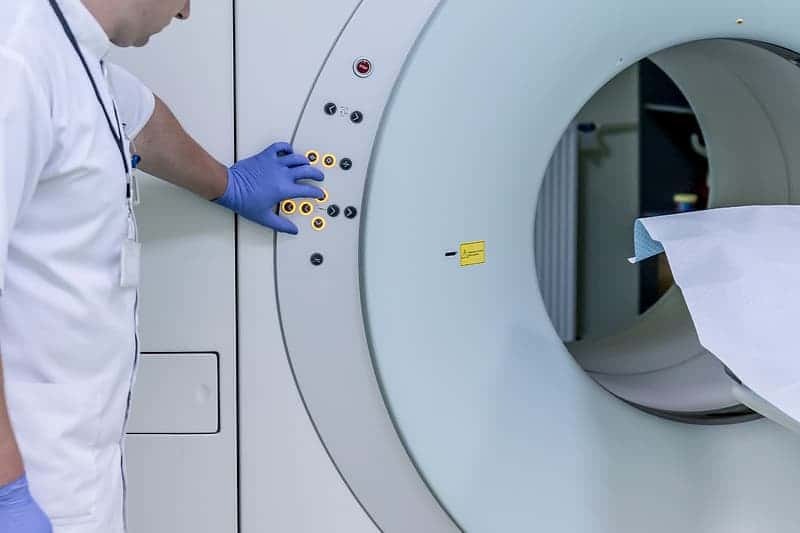
33. As Long As They’re Happy
There was a time during my residency where I had a patient, a 28-year-old woman, come into the outpatient department accompanied by her husband.
This woman had only been married for three months and it was a marriage arranged by their families. Yet, during her checkup, her uterus was about the size you'd expect at 20 weeks into a pregnancy.
So, we recommended an ultrasound and it confirmed a 20-week old fetus.
Given this, I decided to have a private conversation with her, asking her if she had been active before her marriage because I needed to give them an accurate due date. She assured me she had regular menstrual cycles right up until her wedding.
It's not common, but in some rare cases, women can still have their period in the early stages of pregnancy.
After our conversation, I went over her ultrasound results, prescribed the necessary medications, and told her the calculated due date. Thankfully, her husband didn't question why the baby was due in only five months.
I did wrestle with whether or not to discuss this with her husband, but ultimately, I decided to leave it be.
Five months later, she returned to deliver a healthy full-term baby. The couple seemed genuinely happy together.
It made me smile on the inside and reaffirmed my decision to just let things be.
34. Kids Are Dumb
During my time as a paramedic, I once responded to a call about a young boy who supposedly got hurt in a bicycle incident, specifically hurting his lower leg. However, as I evaluated the injury, it didn't seem to line up with the story of a typical bike accident. I decided it might be best to speak to the child privately, so I kindly asked his parents to step away for a few minutes.
I reassured the young boy, who was around five to six years old, that he wouldn't get into trouble for telling me the truth about what happened. With this reassurance, he admitted that he and a friend had been trying to smash bullets with a hammer on a rock. That's when we discovered that, in fact, he had a bullet lodged in his leg.
35. Or He Can’t Go To Work Because He Has To Work
I'm an endodontist, essentially a dentist who specializes in doing root canals and the like. The patient I'm talking about didn't exactly fib to me, but he did to my office receptionist. He skipped out on his appointment and when the receptionist called to find out why, he said that tooth pain kept him from coming in.
My hunch is that he must've muddled up his excuses and ended up giving us the one meant for his boss. What he should've said to us was that he had to work.
36. The Weirdest Musical Ever
I'm an admin at a dental clinic, and my boss told me this amusing story:
We have a patient who's always boasting about her singing talents. She's often found singing while waiting in the chair for her appointment, and sometimes she even serenades us on her way out.
One day, she strode in, insisting on seeing the dentist right away despite being an hour early for her scheduled visit. Since it wasn't a busy day and the examination room was available, I ushered her in and checked her in as 'present'.
When my boss caught sight of her, she was surprised to see the woman without her dentures and inquired about it. The lady had an unusual answer.
"Well, I was belting out a high note at church, and my dentures just launched right into the preacher's hands."
She was hoping to get a replacement, custom-made dentures immediately—and she wanted them free of charge, blaming the 'poor-fit' of the original ones.
Needless to say, she didn't get her free dentures, and after that, she chose not to return to our clinic.
37. Those Two Dudes Are Busy
I've coined it the "two brews" fib. Whenever an individual shows up in the emergency room with an injury tied to drunkenness, their answer is consistently "just two beers." This is usually followed by the response to the 'who hurt you' inquiry, which is typically "a couple of guys."
It appears that, particularly in the heart of Philadelphia, this hypothetical "pair of guys" has inflicted a fair bit of harm on many individuals over the course of the four years I spent there.
Sure, there were grimmer falsehoods, but these two took the cake for their sheer pervasiveness.
38. A Kind Of Illness
While I'm not a physician, I've observed an interesting scenario. A man dealing with a divorce and some conflicts at his job took a brief medical leave. He returned a bit later when his work situation had worsened and he was having trouble sleeping, which led to another medical time off.
As time progressed, it was discovered that he was transitioning to a new job. His present boss wasn't pleased, causing the man to creatively avoid work by rotating visits to several doctors (such as a psychiatrist, an orthopedist, and so on), each for a minor ailment which justified a short medical leave. This way, he avoided arousing suspicions.
The plan might have been successful if he hadn't visited a psychiatrist, who typically probe deeper into these types of situations.
39. What’s My Age Again?
I may not be a doctor, but I heard a story from my mom about a situation that happened at the hospital. There was a woman there with her son, who was 22 years old. The receptionist at the desk asked the woman her age, to which the woman responded that she was only 30.
The receptionist kindly asked the woman to verify her actual age. The woman doubled down, asserting that she was indeed 30. So the receptionist gently rephrased his question, "So then, you were just 8 years old when your son was born?"
The woman was instantly taken aback and became noticeably flustered. The room fell completely silent. She was speechless and visibly embarrassed. The receptionist couldn't help but have a victorious sparkle in his eyes.
 christinarosepix, Shutterstock
christinarosepix, Shutterstock
40. Politician In Training
One day, a worried mom came in with her daughter who was maybe 9 or 10 years old. She was worried because her little girl had a really bad runny nose. The doctor checked out her nose and then shared with me that she believed something was lodged deep inside the kid’s nostrils.
The doctor turned to the child and asked, "Did you put something in your nose?"
In response, the little girl said in a really mature and polite way, "Oh no, I'd never do that". She reminded me of how some refined British children might talk.
The pediatrician was not convinced...so again, he asked her, "Are you absolutely sure nothing is stuck in your nose?"
"Yes, I am positive", the little girl assured. The doctor observed her for a moment. Then, after an oddly silent break, the young patient confessed: "Well, sometimes I play with gravel". She kept her gaze fixed on the floor.
Luckily, the pediatrician shares the building with a nose, throat, ear specialist. She popped into the next office and asked him if he could use his nose equipment to check the child's nose. He agreed and quickly brought over a special instrument and tweezers.
He examined her and made a disturbing discovery. "Yep, there's definitely something in there". He then proceeded to pull out a snot-covered piece of gravel.
Once the small rock was out, the little girl appeared a bit embarrassed but she continuously denied sticking it there till the very end. If you ask me, she’s probably got a bright future ahead, maybe even in politics!
41. A One Time Treat (Every Time)
I manage a clinic dedicated to combating obesity, and let me tell you, there are a ton of untruths that get told here. One incident that really sticks in my mind involved a mother who brought in her extremely overweight child. This mom claimed that her kid always followed a healthy diet and regularly exercised. Yet, they couldn't understand why the child was still so overweight.
Honesty is key in my line of work because there are numerous solutions available if people are overeating or consuming unhealthy food. But when folks refuse to acknowledge the basic principles of nutrition and diet, it's impossible for me to help.
I remember after one clinic session, I made a quick trip to McDonald's. As I was heading inside, who do I see but this same family, all digging into their Big Mac meals. When they noticed me passing by and our eyes met, they just shrugged their shoulders and gave me a smile.
42. Bad Anatomy
Patient: I accidentally swallowed a thermometer.
Doctor: Excuse me?
Patient: Yeah, I was using an oral thermometer to check my temperature and somehow it ended up in my stomach. Now, I can feel it all the way down in my behind.
Doctor: Did you use the thermometer orally or rectally?
Patient: It was orally.
Doctor: Are you certain?
Patient: Absolutely, I was running a fever and then the thermometer just went down my throat.
Doctor: This situation is very risky. Thermometers contain mercury, which is harmful. We must get you to a hospital where they can safely remove it.
Patient: Actually, it's not a thermometer. It's a small hairbrush.
Doctor: You must rush to the Emergency Room. Let them know that I directed you there. I'll get in touch with them. They'll help you extract this swallowed hairbrush.
43. He Just Loves Corn
A portion of my work involves handling health records. What I find most amusing is when I review the doctor's observations, and it's clear they've had enough of the patient's dishonesty from their manner of writing.
"Patient came in for a standard colonoscopy. We questioned if they had eaten any solid foods in the last 24 hours and they said no. However, while performing the procedure, we found many corn kernels in their colon, which disrupted our process.
We gave the patient clear instructions not to eat corn before the procedure since the same issue occurred during a previous visit."
44. A Miraculous Recovery
A guy falsely claimed he was paralysed after a spinal tap. A nurse contacted me, alarmed about a patient who stated he couldn't move his legs post-procedure. I rang up the medical team who had conducted the procedure, and they asserted there was no evidence of this type of complication during the process, but they agreed with my plan to immediately schedule an MRI.
I went to evaluate the patient, and the nurse mentioned she saw him move a foot. The guy then admitted that he regained movement in his legs—but something was off...they felt strange. Soon, this oddly sensation evolved into severe pain and he requested intravenous Dilaudid. I denied his request, given the inconsistencies in his story.
You wouldn't believe it, but this guy literally walked out of the hospital on his own when I denied the IV.
By the way, turns out the MRI results were normal.
45. Forgotten Burger
I'm a med school student. No biggie, right? But here's a weird situation: a patient wasn't upfront with me about what she'd consumed. It looked like she was experiencing gallbladder issues, which are often caused by eating fatty foods.
So, naturally, I asked her about her pre-pain meal. She claimed that her food intake was minimal, just a salad with a smidgen of ranch dressing. I tried explaining how fatty foods aggravate the gallbladder, yet she stuck with her "salad only" story.
Next, I touched base with my supervisor and we questioned her together. When my supervisor probed her about her meal, she continued with the salad part but surprisingly added a tidbit about a burger! It wouldn't have really impacted our plan of action, but why the deceit?
46. Someone Find This Man A Friend
The gentleman in our tale was a charming elderly patient who cherished telling stories, complimenting each person warmly and respectfully, professing his deep gratitude for our work, and more.
Despite diligently claiming to take his high blood pressure medication as prescribed, his pressure remained precariously high. This puzzling pattern, even after numerous medication adjustments, eventually raised concerns. We wondered if he was taking his medication properly, or at all.
One day it was noted that this gentleman always slipped into the bathroom before even saying hello to our front desk staff. To our surprise, we discovered he was consuming a handful of salt each visit, intentionally elevating his blood pressure before meeting our doctors.
Further, we found out that he hadn't been faithfully following his medication regime as he had claimed, seemingly striving to keep his blood pressure high.
Eventually, the reason for his unusual conduct was revealed. This lonely old man didn't get much interaction with his family, despite living close by, and spent most of his time by himself.
Unfortunately, his family rarely initiated contact. Feeling alone, he found his ingenious yet dangerous way to ensure weekly interactions in the hospital's emergency room—by maintaining his high blood pressure.
47. At Least They Were Sterilized
My friend, who happens to be an Emergency Medical Technician, once shared an intriguing story about an emergency call she answered. She told me that the call was from a man who barely made sense because of extreme distress, yet he was able to perfectly relay two pieces of information: his home address and the term 'stomach.'
Upon their arrival, they found the man swathed in a blanket, sweating excessively. His inactivity made it seem like he hadn't moved in ages. She quickly realized that, as jaundiced as he looked, his cheeks were still flush with color.
He was also avoiding eye contact, refusing to answer their questions. His sole verbal responses, punctuated by bouts of discomfort, were 'poison' and 'stomach.'
Doing a quick sweep of the scene for any obvious signs of toxic substances, she found nothing. But just as she was about to return to the ambulance, something caught her eye—a large pot simmering on the oven with a slew of decapitated Barbie dolls inside.
The moment she informed the man about turning the stove off, he became unpredictable and confrontational until they safely delivered him to the Emergency Room. Coincidentally, later that same day she encountered a buddy who works in the radiology department.
According to her friend, the man spent his entire time there repeating the word 'poison' whenever they asked what he consumed. His attitude drastically improved, however, once they informed him that an X-ray was being planned.
A newfound serenity washed over him, and he started being more responsive, as though he'd accepted the inevitable confirmation of his actions. The subsequent X-ray examination uncovered that he'd swallowed up to 18 Barbie doll heads, which had been lodged in his stomach for nearly two weeks.
Why all these, despite clearly knowing about the potential hazards of using old plastic('s effect on organs)? His simple yet strange explanation was that he used to sterilize and swallow the doll heads because he liked how it felt when they left his system.
48. Water You Doing?
A patient came to see me as he noticed blood in his urine and had a former case of bladder cancer. So, I asked him for a urine sample and let him know that I would proceed further after analyzing it. This is when things got weird.
The laboratory team informed me that the given sample seemed undeniably like plain water and was even cold, making them believe he had simply filled the container directly from the tap.
So, I rang up my patient and, though initially taken aback, he eventually admitted that he couldn't urinate and had filled the bottle with water. He didn't give any clear explanation for doing so.
The bottom line: It turned out, he had cancer again.
49. Doctor Hercule Poirot
My grandpa worked as a physician on Mount Desert Island in Maine for quite a while. It's a place with a small crowd of year-round residents, mostly due to the fact that the majority of visitors only come during the summer. The island's quite upscale and is filled with luxurious homes owned by wealthy families.
One particular day, two ladies rang my grandpa for help at the house of a senior man, whom they insisted had suffered a heart attack and passed away. The truth was a lot darker, though—the deceased guy was an older millionaire, and the ladies were sort of a mix between girlfriends and wives to him.
They were quite adamant that he randomly had a heart attack and passed away and urged my grandpa to confirm a 'massive heart attack' as the reason and then quickly leave, handing over the deceased man's body to the funeral home. This man was found laying face-down, and for some reason, it appeared odd to my grandpa.
So he decided to turn him over and check his body. To his shock, he discovered an unusual wound on the man's chest. As it transpired, the women had schemed to kill the older man for his fortune.
Back in the 1950s, when my grandpa was serving there, the death of older folks wasn't taken with much suspicion because the place was viewed as a retirement hub. If my grandpa had not inspected the man's chest, chances were high that the women would have successfully gotten away with murder.
50. Deception Over 9000
A man walked into my room one day, suffering from terrible bouts of stomach pain. He had shared with the ER doctors already that he hadn't had a bowel movement in three days and requested an ultrasound.
Despite them reassuring him an ultrasound wouldn't be useful, he was adamant about not having an X-ray due to past radiation exposure.
But there was a humorous twist—after performing the ultrasound (which showed normal results), the man sat quietly behind the curtain, just calmly resting while I prepared the report. Soon after, he got up, left, and was out of sight within just five minutes.
Fast forward an hour later—while checking my equipment I realized an internal scan probe, worth about $9000, was missing.
This was a profound learning experience for me. It's clear now that not all people entering the hospital are necessarily sick.


